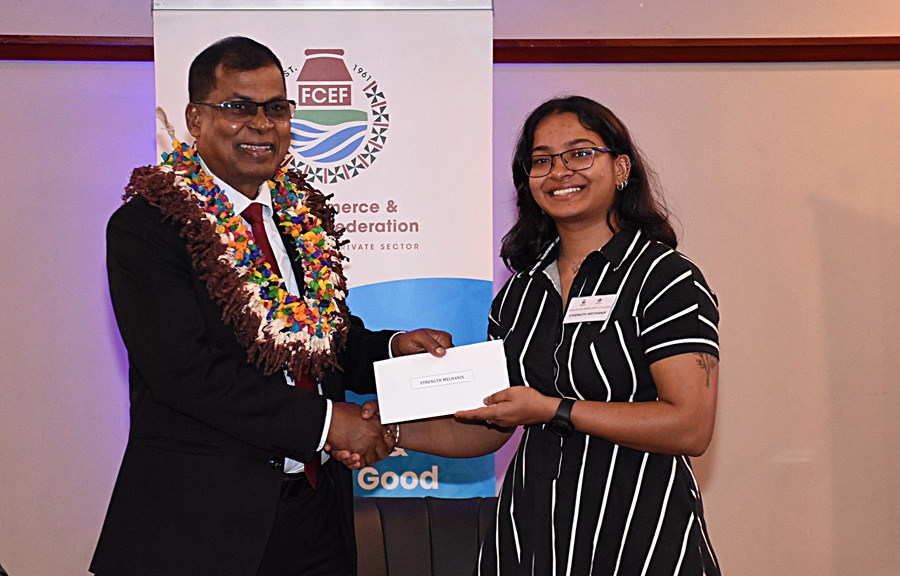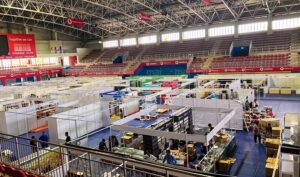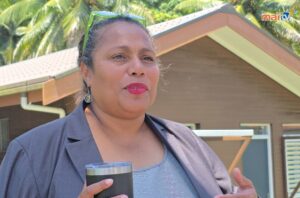When Ashley Chand walked away from her career as an auditor, she had a vision — and a mission.
Today, thanks to Fiji’s new Graduate Business Start-Up Grant Scheme, that mission is coming to life, one protein bar at a time.
Chand, a powerlifter-turned-entrepreneur, is one of 21 graduates who have received $5,000 to launch their own businesses under the pioneering program, a public–private partnership between the Fiji Government, Tertiary Scholarships and Loans Service (TSLS), and the Fiji Commerce and Employers Federation (FCEF).
Her startup, Strength Mechanix, aims to create affordable, locally-produced protein bars tailored for athletes like herself.
“I worked as an auditor. I love numbers, but I did not enjoy it much,” Chand said. “I’m on a mission to produce protein bars that are actually good — not just for fitness, but for the wallet too. This grant will turn that dream into a reality.”
Chand represents the 70% of women among the first cohort of incubatees — graduates who’ve completed intensive training in business planning, mentorship, and entrepreneurial strategy as part of the grant scheme.
“In the next three months, you should see our products in the market,” she said. “And in five years, I hope Strength Mechanix will be headed for export.”
The Graduate Business Start-Up Grant Scheme was piloted in the 2024–25 National Budget with a $300,000 allocation. It targets TSLS-funded graduates with scalable, bankable business ideas — and is being hailed as a model for private sector-led development in the Pacific.
Professor Biman Prasad, Deputy Prime Minister and Minister for Finance, described the initiative as a catalyst for economic transformation.
“The scheme not only provides startup grants, but also a range of business development services linked to private sector expertise, and this is a very good example of public-private partnership working through the education sector,” Professor Prasad said.
He highlighted the role of micro, small and medium enterprises (MSMEs) in Fiji’s economy, which account for 60% of total employment and contribute an estimated 18% to GDP.
“We want to raise that GDP share to 31% by 2029,” he said. “This program fits squarely into our long-term vision of becoming a high-income country by 2050.”
TSLS CEO Hasmukh Lal commended FCEF for its implementation of the scheme.
“We can have a lot of policies, but when the partners do not implement the policies, the policies tend to fail,” Lal said.
Lal cited data from the Asian Development Bank showing that MSMEs made up 82.4% of Fiji’s economy in 2020 — a figure he believes has grown since.
The grant scheme is also a first for the Fiji Enterprise Engine (FEE) — the country’s only private-sector accelerator program, hosted by FCEF.
Edward Bernard, Chief Executive Officer of FCEF, said that integrating the grant program into FCEF’s incubator model was a natural fit.
“This is about more than grants,” Bernard said. “Now, entry into our program wasn’t easy. Our incubators — the grant recipients — were required to submit a business concept, upload a video explaining their idea to showcase their passion, and complete an AI-generated entrepreneurship psychometric assessment, which helped us identify their strengths and skills gaps.”
The 21 selected graduates now join FCEF’s growing alumni network, gaining access to the Young Entrepreneurs Council and Women in Business Council.
“This is only the beginning,” Bernard said. “We see great potential to expand downstream into the education system, integrating entrepreneurship education into high schools and even primary schools.”











